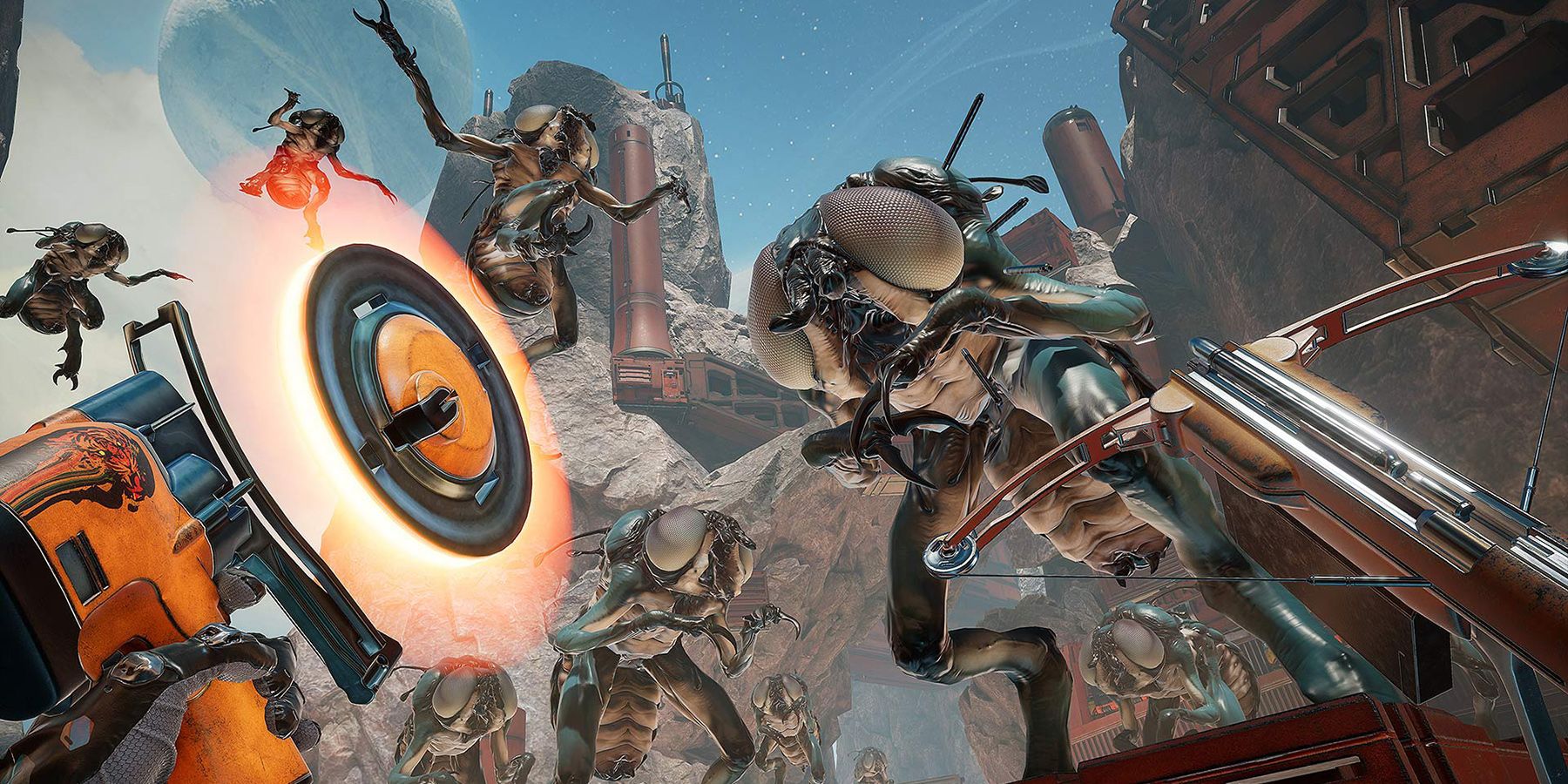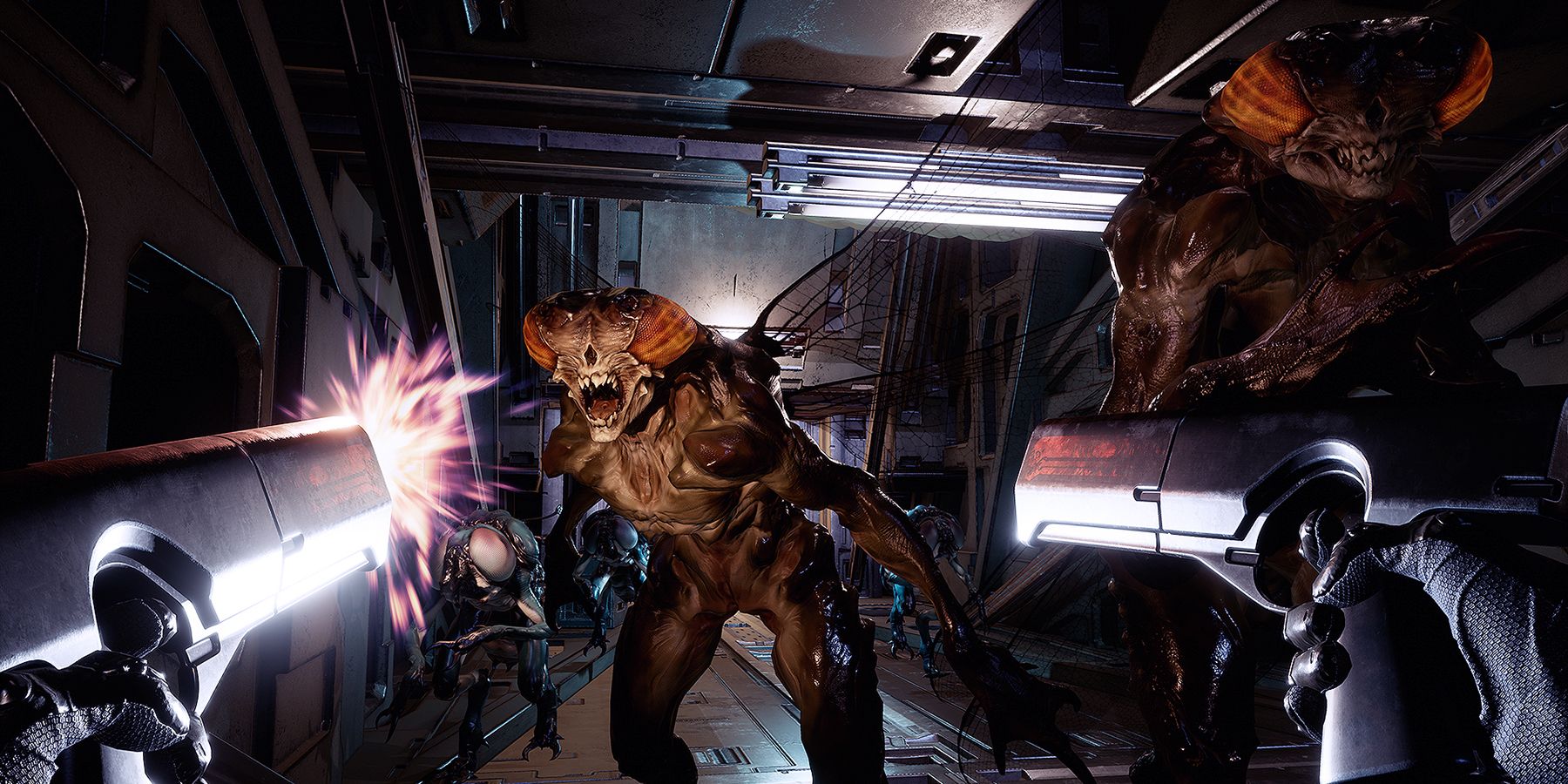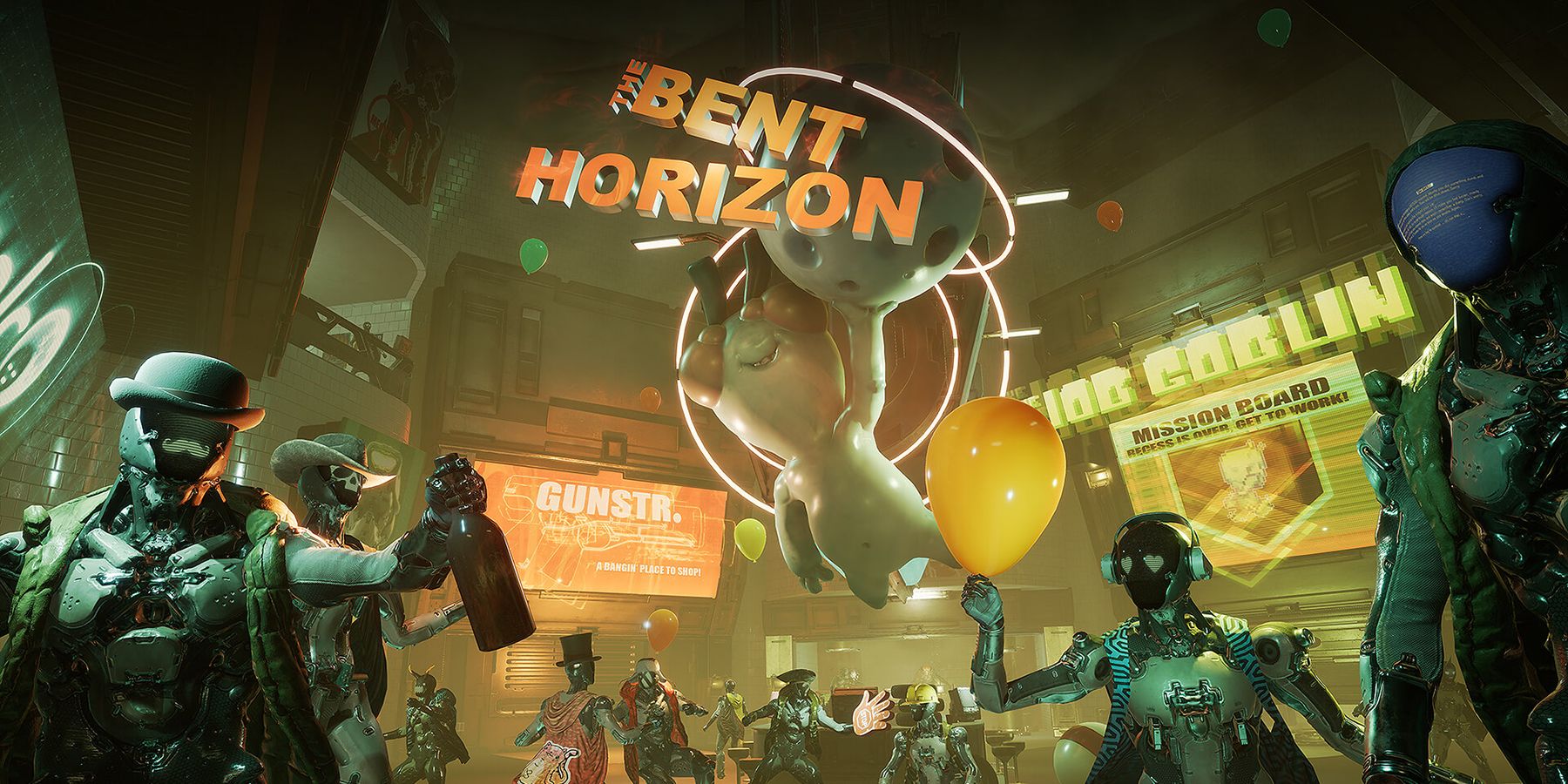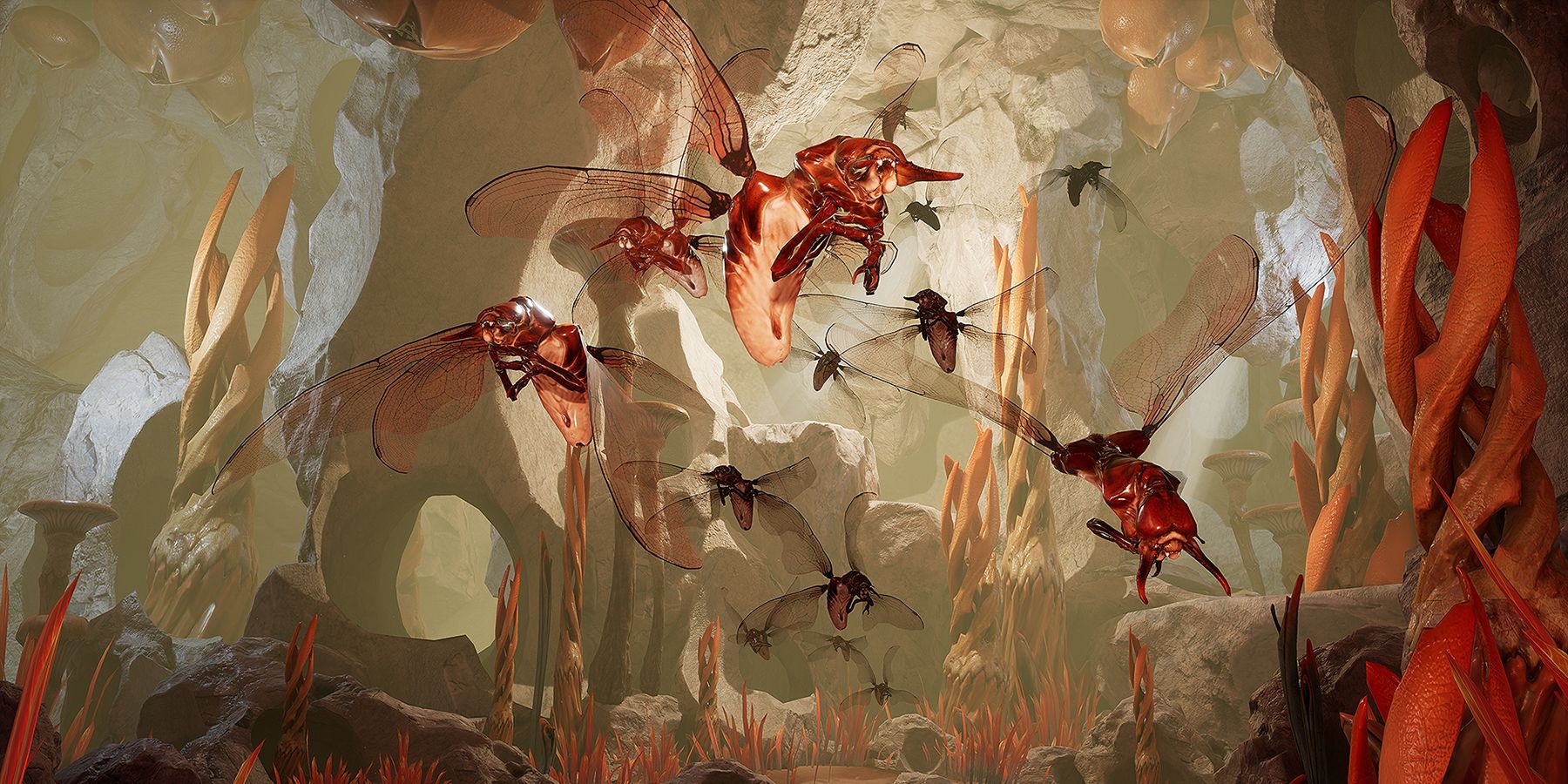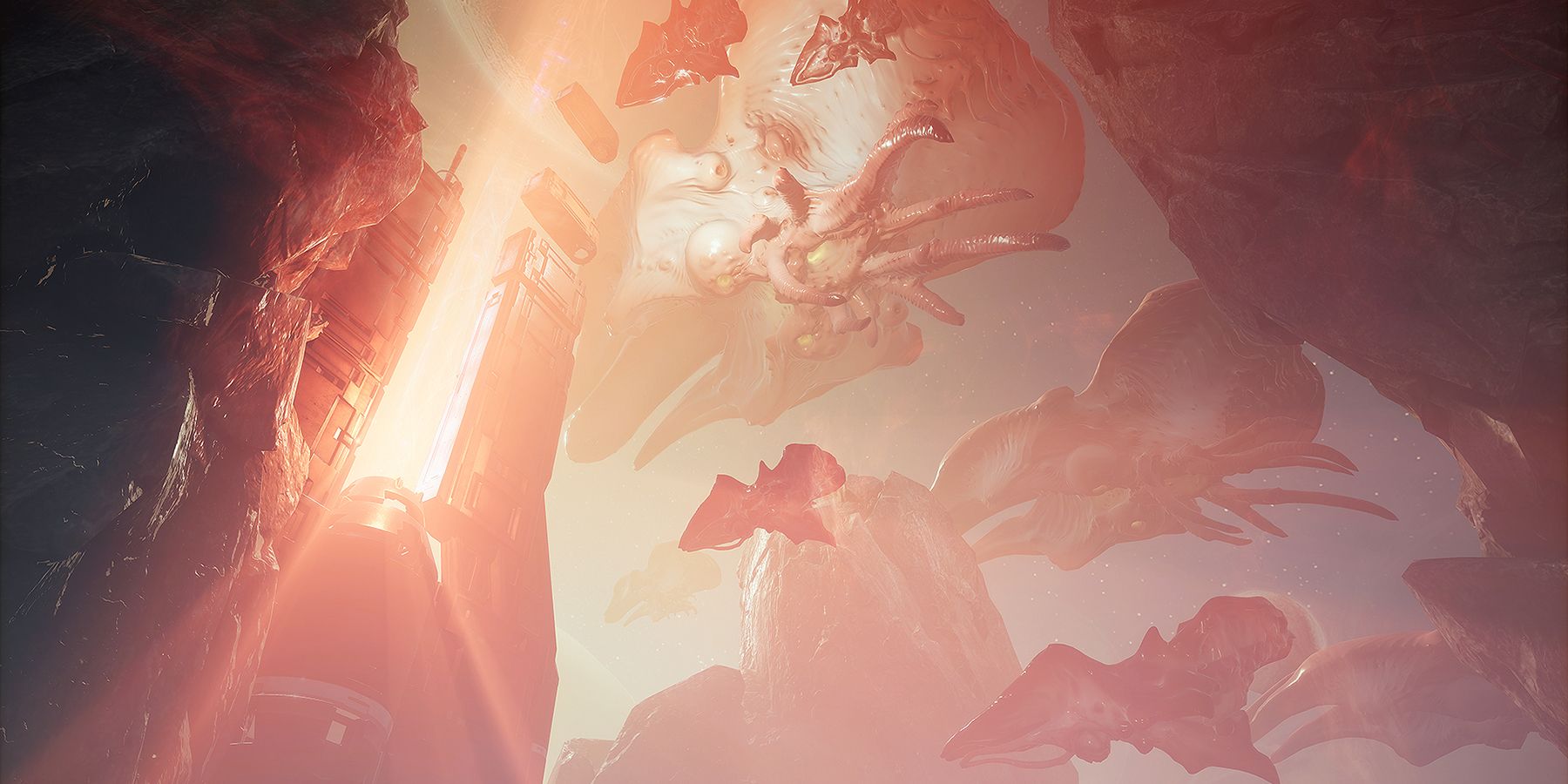At the moment, virtual reality gaming is at an awkward middle stage. When the likes of the Oculus Rift and HTC Vive first burst onto the scene, the potential for the technology was immense, from the early tech demos through to the initial retail hardware releases. However, there was a sense that a lot of the content initially made available acted as proof of concept rather than as fully fledged gaming experiences. The next steps for VR were undoubtedly to move into something more substantial, and this is precisely what Gunheart is aiming to do.
This first-person shooter comes from a strong pedigree. Developed by Drifter Entertainment, the title's dev team has prior credits with the likes of Epic Games, Oculus, and Microsoft, working on such major franchises as Gears of War and Halo. Getting a free-flowing shooter working well in a VR environment was perhaps going to be the technology's biggest challenge as a whole, and getting veterans on board in the medium was always going to be hugely important.
Related: It Seems Like PC Gamers Are Going to Get More Halo Soon
That's not to say that there haven't been some big-name VR releases, of course. The likes of Fallout 4 and DOOM have made the move to VR, while direct VR projects such as Farpoint or Epic's own Robo Recall have also impressed given the fledgling status of virtual reality headsets. However, it's fair to say that the best VR-focused games know the current limitations of the medium and adapt accordingly.
This is an area where Gunheart certainly excels. Up to this point, many VR shooters fall into the same traps, where to offset the clumsiness of VR controls the gameplay is made excessively sluggish, giving players the time and space to respond to incoming threats while limiting larger movement. This has often led to games where the player feels almost tank-like in their movements, but Drifter Entertainment has managed to keep a decent level of fluidity with Gunheart.
This is part comes down to the nature of the game. The title certainly has something of a relaxed attitude, the gameplay free-flowing but at the same time steering clear of being too intense. Rather than the frustration that can be found in some VR shooters, particularly for those more used to playing games that never had virtual reality in mind, Gunheart generally remains fun.
It certainly helps that the game is going for a much more arcade-esque vibe than some of its counterparts. There are definite shades of Destiny here, while the framing of the game around bounty hunters and its emphasis on cooperative play has understandably drawn comparisons to Borderlands. However, the game's tone in general is also reminiscent of those early 2000's twitch shooters, albeit without the same emphasis on speed.
Something that helps Gunheart with its atmosphere is a tongue-in-cheek style and some solid comedic overtones. The game's central hub, The Bent Horizon, helps instil a sense of fun, steering clear of any kind of serious tone in a way that definitely benefits the game overall. The player character has come to Planet Fortune seeking exactly that, as have the rest of the bounty hunters looking for cash and action.
In general, then, it's easy to find quality in Gunheart, even outside of the game's very impressive graphical elements. The game's developers have a very solid understanding of what makes a shooter tick, from the mechanics down to the tone, and altogether it makes a fairly cohesive experience. In particular, it's worth pointing out that Drifter Entertainment has done a fantastic job with controlling player movement.
Movement in a VR space has always been a bone of contention for developers, and VR titles have tried various ways of overcoming the issue of movement control while maintaining the free nature of item and weapon usage. Gunheart's solution is to make a teleportation system of movement into a real selling point of the game, acting almost as a bonus power and allowing players to jump around the game's expansive maps with ease. With that, Gunheart has managed to successfully manoeuvre around one of the biggest question marks of VR gaming with ease. It might not be a solution for everyone, but here it certainly works.
The game's arsenal also functions well within the framework of VR, with a nice variety of weapons to help break up the gameplay. Although players will find a lot of the standard fare for a game of this sort, with SMGs and chainguns perhaps traditionally the most reliable within a VR environment, there's also some fun to be found with the game's bows, which add something of a different dynamic overall. It may not be the most extensive array of options, but the decent level of options here will keep things from feeling too stale.
That's not to say that the game is perfect, though, and Gunheart does have its issues. Things still don't feel as heavy as players may want, with a weightlessness that is undoubtedly at least part by design (perhaps another nod to Borderlands and Halo) but nonetheless may feel offputting to some. Much of the action in game feels like it could drift away, and although this isn't a major concern it's still a sign that Gunheart has not overcome all the known issues with VR shooters.
Equally, the game's AI isn't quite up to par. Again, a lack of complex AI movement isn't necessarily a bad thing within a VR game, allowing players more leniency to learn enemy patterns and a better chance of aiming to hit targets correctly. Users can only react so fast with VR in mind, but enemy patterns here do feel a little bit too basic and encounters do get tiresome.
This in part leads to another issue with the game - a jarring divide in style. At times, Gunheart almost feels like two games in one, with vast above world maps and more claustrophobic tunnels, and those tighter spaces feel much more frantic, and definitely less fun. Meanwhile, the open world above, and the larger options to teleport around like a spacebound superhero, are much more enjoyable.
Nonetheless, there's a decent amount to build on here. Drifter Entertainment has laid a very solid groundwork for VR first-person shooters, with fun (if shallow) gameplay, impressive environments and character models, and a good idea of how tone can help shape a player's enjoyment of the game. It might not be the VR game to make FPS fans turn away from more traditional gameplay models, and playing without a VR headset in place is not going to force the game into a larger discussion about impressive shooters, but it's still an enjoyable ride while it lasts, and one that VR fans would be wise to investigate.
3.5/5
More: E3 2018 Press Conference Schedule & Where To Watch
Gunheart is now available for PC.

